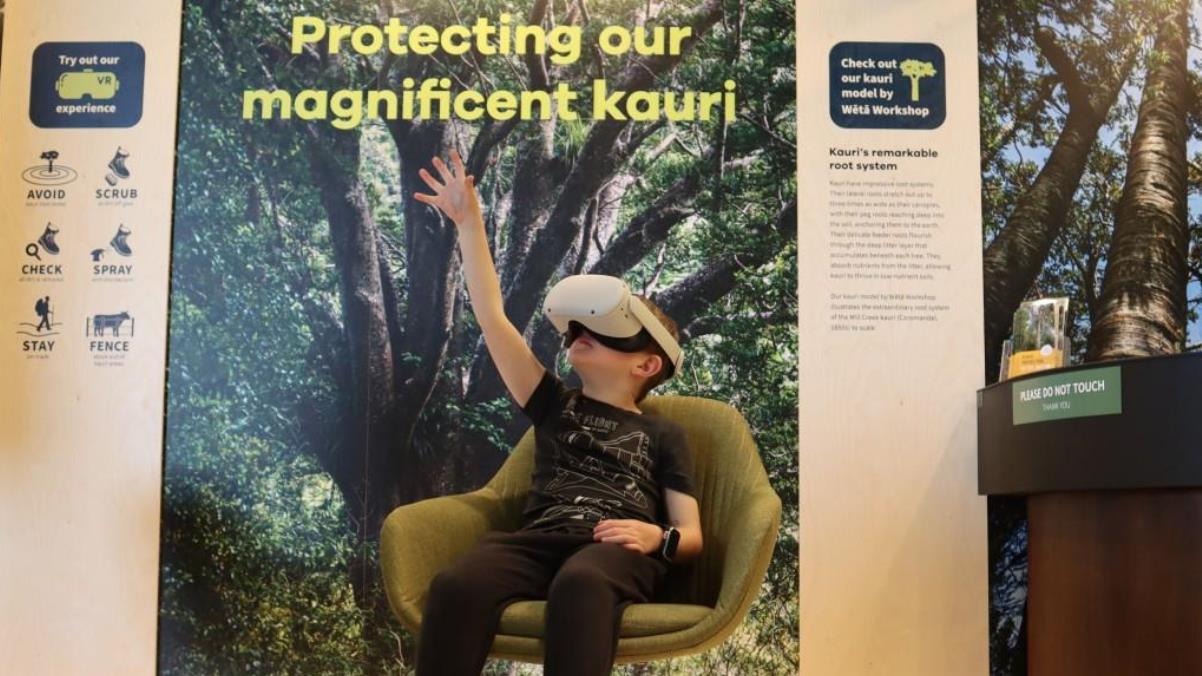WRC news
Waikato Regional Council’s kauri protection programme has won the Eagle Technology Local and Central Government Award at the 2024 New Zealand Biosecurity Awards.
Pest Plant team leader Darion Embling, who collected the award on behalf of the council at the awards ceremony at Parliament last night, says southern kauri populations are vital to a future of kauri, being almost free from kauri disease.
“For this reason, our small kauri protection team aims to inspire and enable rural landowners, community groups, schools, iwi, stakeholders and industry groups to invest in a future that includes healthy kaurilands with giant kauri.”
Embling says protecting kauri is important as kauri are a keystone species, which means their presence helps define an ecosystem.
“This means the survival of kauri is vital for the survival of other species that have evolved to live on or around them,” says Embling.
“The Waikato has the largest areas undetected for kauri dieback. There are just four known areas of kauri disease in the region, in Whangapoua, Hukarahi, Tairua and Kennedy Bay.”
In fact, the Waikato region has over 94,000 hectares of kaurilands, of which more than 20,000 hectares is old growth kauri forest. The Manaia Kauri Sanctuary is home to more than 400 ancient kauri trees, some of which are over 1500 years old.
To help protect these majestic trees, the council helped advocate for national funding and rules to protect kauri for many years.
That advocacy helped ensure the development of Tīakina Kauri, the national kauri protection programme, and a national pest management plan made operative last year to help protect kauri from the pathogen Phytophthora agathidicida (PA).
It also led to the Government investing $32 million into kauri protection over five years to 2026.
Embling says funding received by the council as part of that enabled its kauri protection team to ramp up its protection work, particularly in education.
The team commissioned award-winning special effects and prop company Wētā Workshop Ltd to create a scale model of a mature kauri tree, which includes the widespread root system that is vulnerable to PA.
It also led the development of Kauri Pou Kaitikai, a virtual reality (VR) experience to help influence the behaviour change required to protect kauri, and which includes a visual narrative about the cultural, spiritual and ecological significance of kauri and an interactive shoe-cleaning game.
“Both these educational tools are being used as part of a kauri road show available to Enviroschools, other schools, community groups, other organisations and events, within and outside the region.”
Elsewhere, the kauri team been providing cleaning stations, hygiene kits and equipment to community volunteer groups and businesses that work within or inspire visitors to enter kauri forests; and helping them develop kauri protection plans as required by the national PA pest management plan.
The council also set up a fund to help landowners keep stock out of kauri areas by fencing, with up to 100 per cent of costs being provided. About 17 kilometres of fencing now protects about 210 hectares of kaurilands, including infected sites.
The other finalists in the Eagle Technology Local and Central Government Awards were AsureQuality’s 2022-2023 for their response against black grass in Canterbury and the National Institute of Water and Atmospheric Research’s (NIWA) for their work as part of Biosecurity New Zealand’s Caulerpa response.
